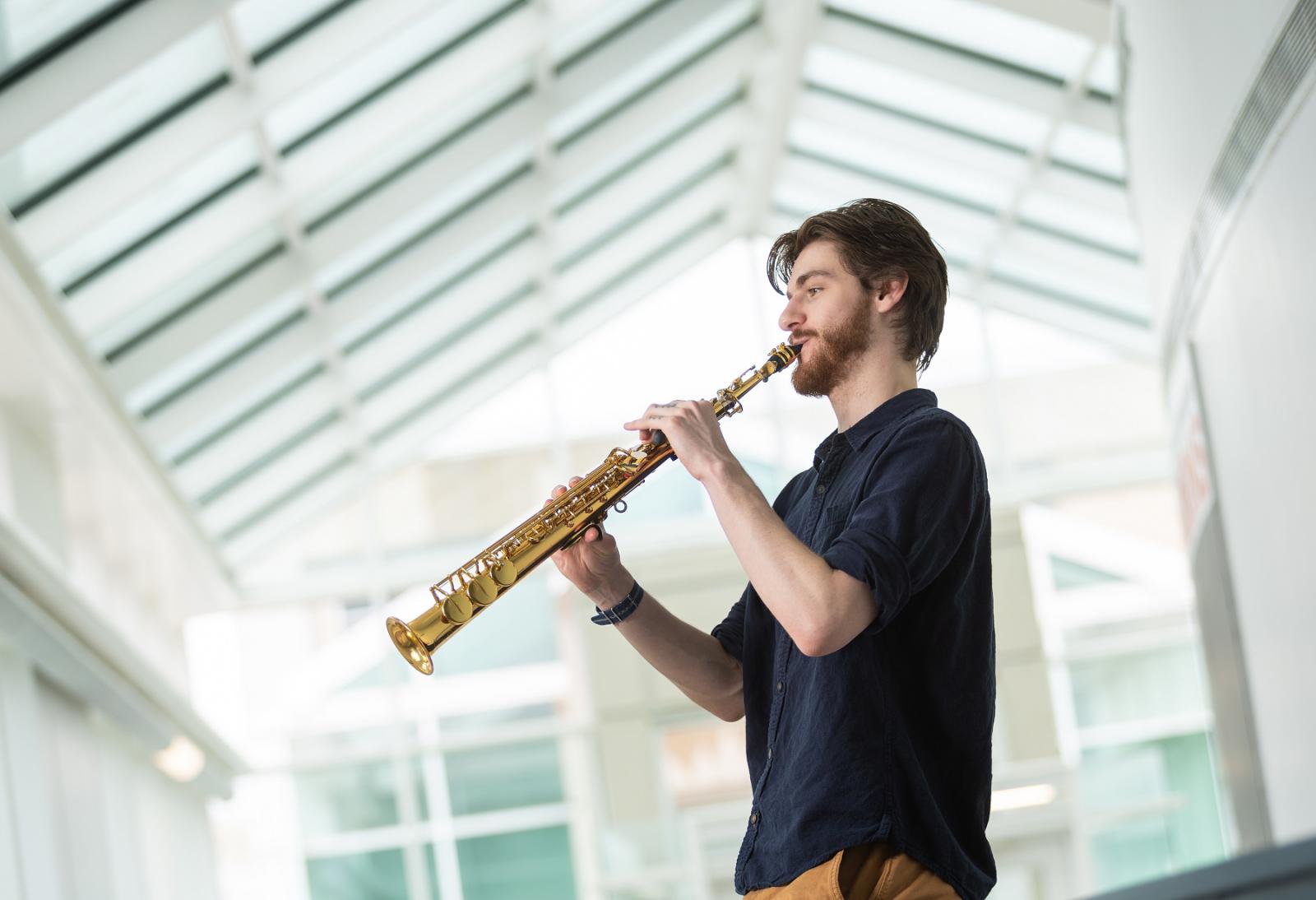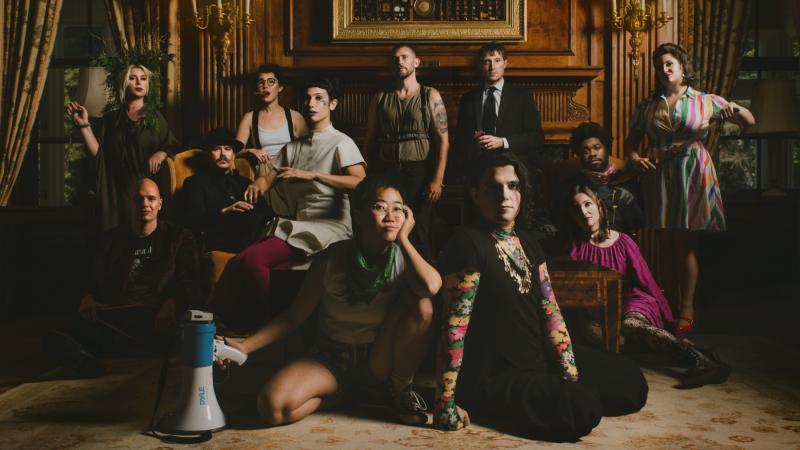“I was over the moon,” said Evan Ney, a Lawrence University fifth-year student seeking a Bachelor of Music in saxophone performance and Bachelor of Arts in English.
He had just won the annual Lawrence University Wind Ensemble Concerto Competition, and he was set to perform Ingolf Dahl’s Concerto for Alto Saxophone and Wind Orchestra. In late April, he took the concerto to Memorial Chapel, with a striking interpretation that favored drama and genuine passion. Accompanied by the university’s Wind Ensemble, under the baton of Andrew Mast, major works by Joseph Bologne and Frank Ticheli also were featured.
The concerto itself is Dahl’s best-known work, featuring three distinct, highly evocative movements. It opens with a recitative, where the phrases are rhetorical and gestural—almost spoken, explained Ney. The contrasting second movement features increased lyricism and interplay between the soloist and band.
“It’s just a romp—it’s just fun”, Ney said of the third movement. As an optimistic finale, it evokes Dahl's well-known wit alongside references to popular music.
Ney cites dramatic stylistic shifts and the final movement’s velocity as particular challenges. However, there is a more notable concern at play.
“It stretches your ears; we’re not working with major and minor chords all the time,” he said, “It's not atonal [but] it's stretching our understanding of harmony into some really rewarding, but also challenging ways.”
Next up? Recital of commissioned music
Ney is now gearing up to extend his musical journey with an upcoming recital, the culmination of his time at Lawrence. It’s set for 11 a.m. May 12 in Harper Hall.
“For me, this is the most distinctive project of all,” he said. “It's been years in the making.”
When the Haverhill, Massachusetts, native arrived at Lawrence five years ago, he pondered two related questions: “What are my heroes doing in the saxophone world?” and “What do we need as saxophonists?”
A singular answer? New music.
“Our compositional lineage doesn’t really go back that far compared to other classical instruments,” Ney said. “The saxophonists I look up to are premiering new work and they’re working with composers.”
Integrate intellectual and musical virtuosity in a supportive community that will empower you to find your musical path.
With a clear goal in mind, Ney began planning a contemporary-focused recital as early as his sophomore year.
“A major part was getting my own playing to a level where I could actually play these [newer] pieces,” he said.
Oftentimes, contemporary classical repertoire, particularly for saxophone, is chock full of extended techniques, which ask the performer to undertake especially difficult sound manipulation. Of all Western instruments, the saxophone is particularly versatile in this regard.
“One of the things I’ve really enjoyed during my study here is unlocking these different abilities and new sounds,” Ney said.
Indeed, the instrument can switch between what sounds like a startling train horn to a pensive whistle in mere seconds.
“I see them as expressive tools,” Ney said, “not just displays of virtuosity, but a sound that says and means something.”
This perspective led Ney to commission a host of composers for new saxophone works. After securing a grant from the Chandler Senior Experience Fund, he sent dozens of emails to colleagues and teachers, asking for their composer recommendations.
“The one person who kept coming up over and over again was Daniel Whitworth, a Lawrence [2018 graduate] saxophonist and composer,” Ney said.
Whitworth’s name is no stranger to saxophonists, given that he composed a major sonata for the instrument.
“If everyone in your life is telling you to do something, you need to do it,” Ney said.
After reaching out to Whitworth, the composer wrote him a work for saxophone and electronics, driven by rhythm and timbre. Notably, it incorporates a passage where the saxophonist must employ circular breathing, seamlessly maintaining airflow without interruption.
Ney also commissioned composer Ethan Isaac, who specializes in microtonal music—where a scale is divided into smaller parts than a standard piano. The result is a fascinating collage of percussive sounds and multiphonics, a special technique where the instrument is able to play multiple pitches simultaneously.
The project also showcases the compositions of two Lawrence students: fifth-year Jasper Kashou, a music education and music performance (saxophone) double major, and myself, a fourth-year music composition and art history double major.
Kashou’s work mixes bluegrass and contemporary techniques for an ensemble of saxophone, banjo, and double bass. My composition emphasizes the transition between air and sound, using texture in place of pitch.
“I had the great privilege of people who wanted to write music for me to play,” Ney said. “It’s been a great honor that my playing has inspired people to write for saxophone and to listen to what this instrument has to offer.”



